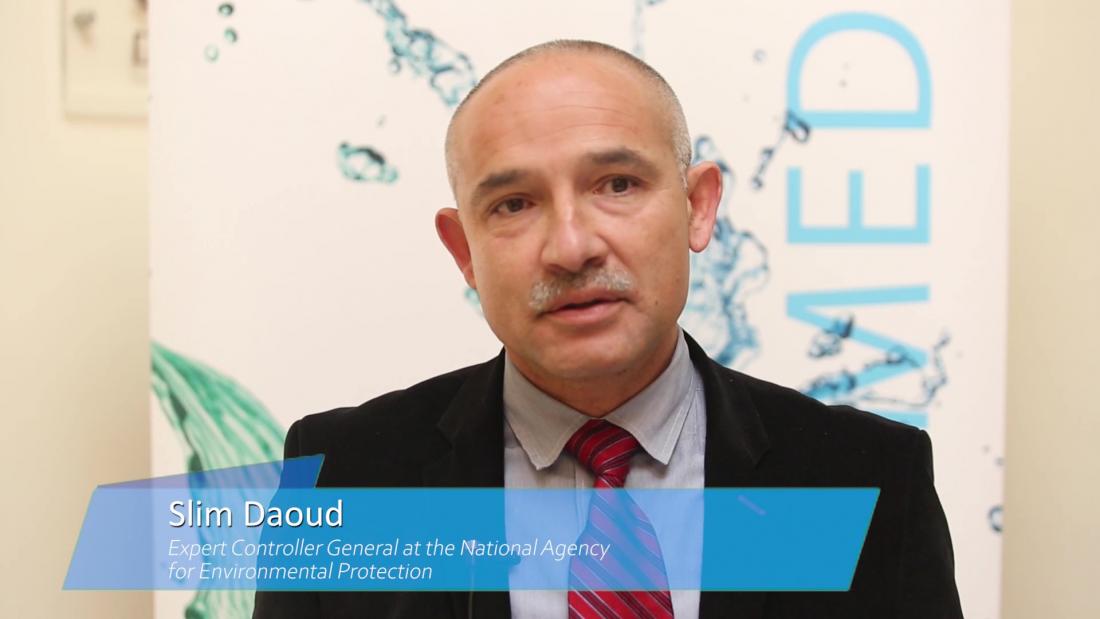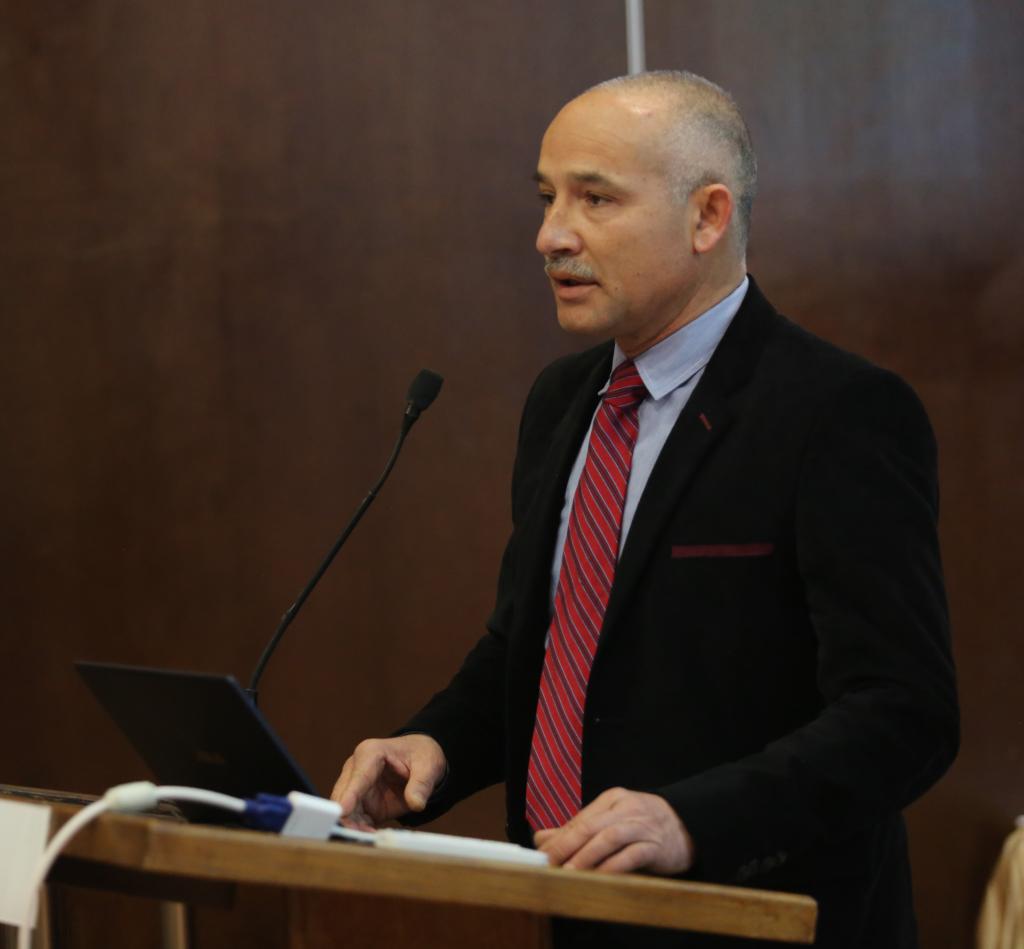NAWAMED: "What regulatory framework for grey water reuse in Tunisia?" - Mr. Slim Daoued, National Agency for Environmental Protection

Mr. Slim Daoued is an Expert Controller General at the National Agency for Environmental Protection (ANPE). The ANPE main mission is to participate in the elaboration of the general policy of the government in terms of pollution control and environmental protection, and in its implementation through specific and sectoral actions as well as global actions in the framework of the national development plan.
Mr Daoued is invited to the "Decision Makers Workshop" organised in the frame of the NAWAMED Project and specifically in the project Work Package n. 4 "Training and capacity building on Sustainable Domestic Water Management (SWM)". During this workshop he gave a presentation entitled: "What governance and what legislation for the valuation of greywater?".

Mr. Daoued reminds that the field of wastewater management in Tunisia is regulated by the framework law relating to the promulgation of the water code, amended firstly in 1975 and then in 2001 and 2004. This code proclaimed that water is an economic wealth, it must be protected and conserved. Among the development alternatives of this resource: the reuse of wastewater for production or service purposes, the use of brackish water… However, the definition of wastewater was given years later in the joint order of the Minister of the Environment and the Minister of Industry, relative to the discharge into the receiving environment.
In this definition, household wastewater was mentioned without giving a specific definition of greywater; therefore, our definition of greywater was based on the World Health Organization's guidelines. The sources of greywater are essentially baths, washing machines, dishwashers, showers... How to proceed for the valorisation of this component of water, which is greywater?
As Tunisia does not have a specific text for greywater reclamation, we can refer to foreign practices and experiences to prepare a regulatory text, decree or order, leading to the reuse of these treated waters. According Mr. Daoued, treated wastewaters will be reused for flushing toilets or watering plants. In addition to domestic use, their reuse can also be extending to the mosques and sports complexes where a lot of water is consumed and a lot of greywater is produce.
To follow all the interview of Mr. Slim Daoued, please click here.







